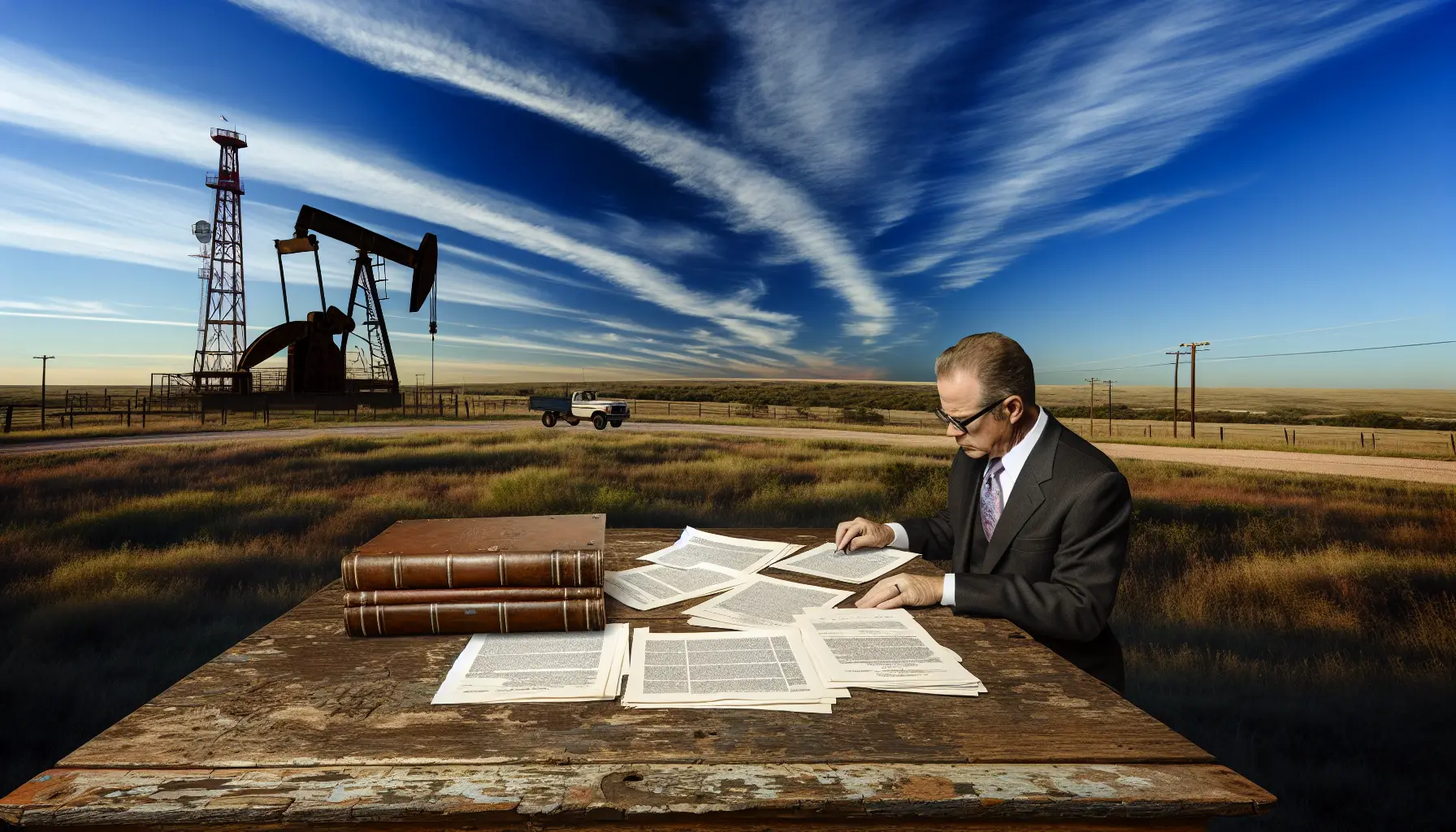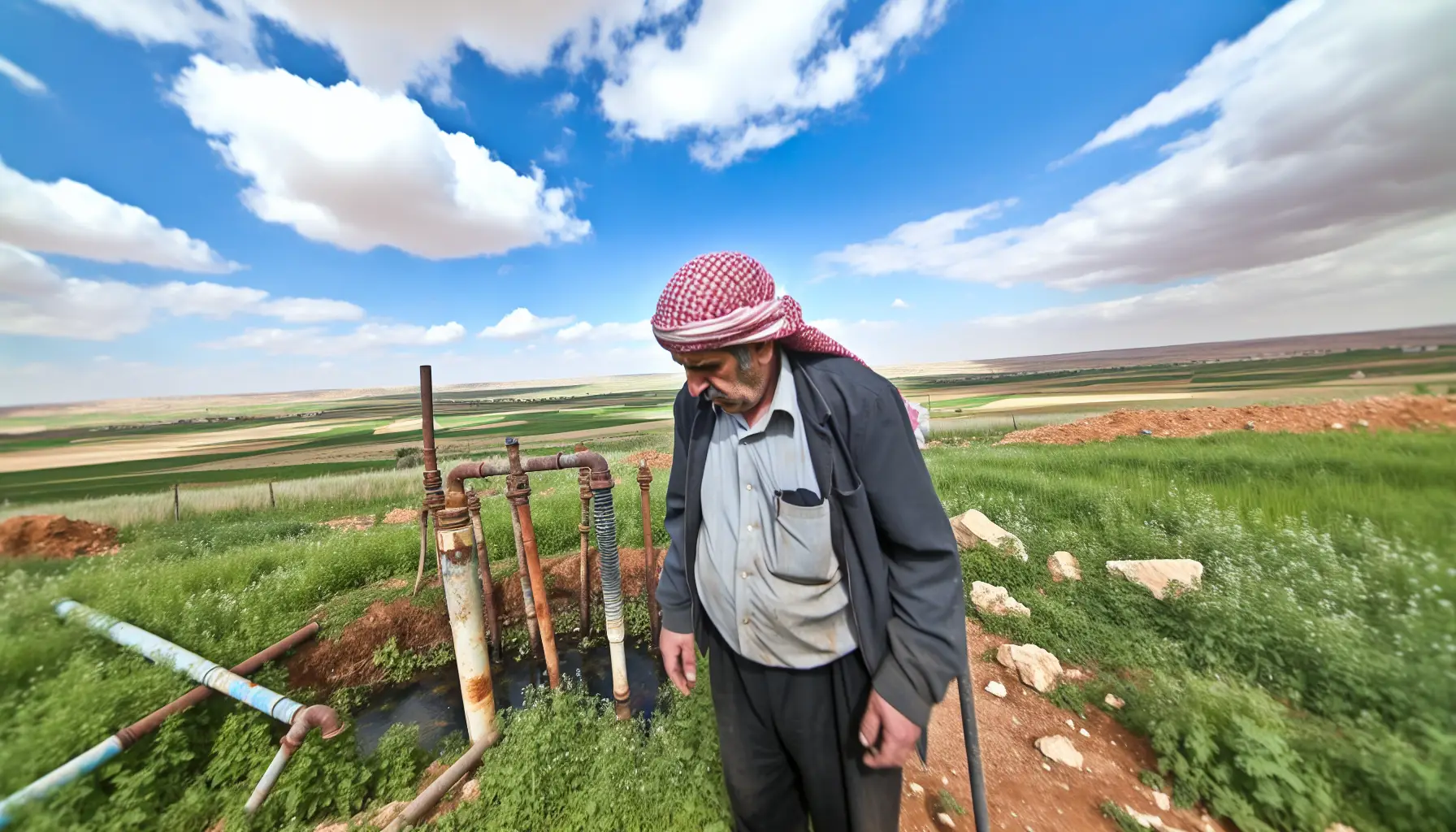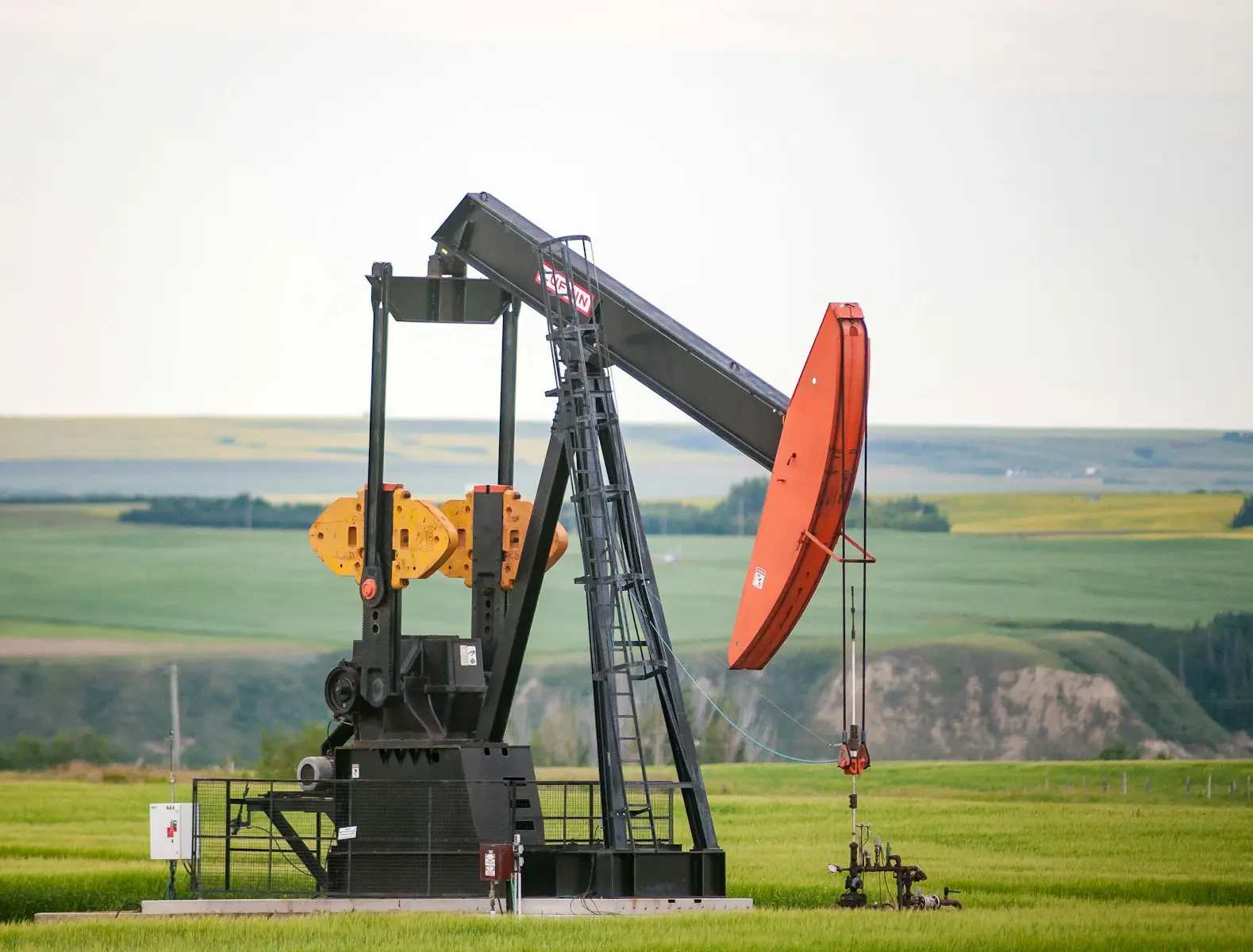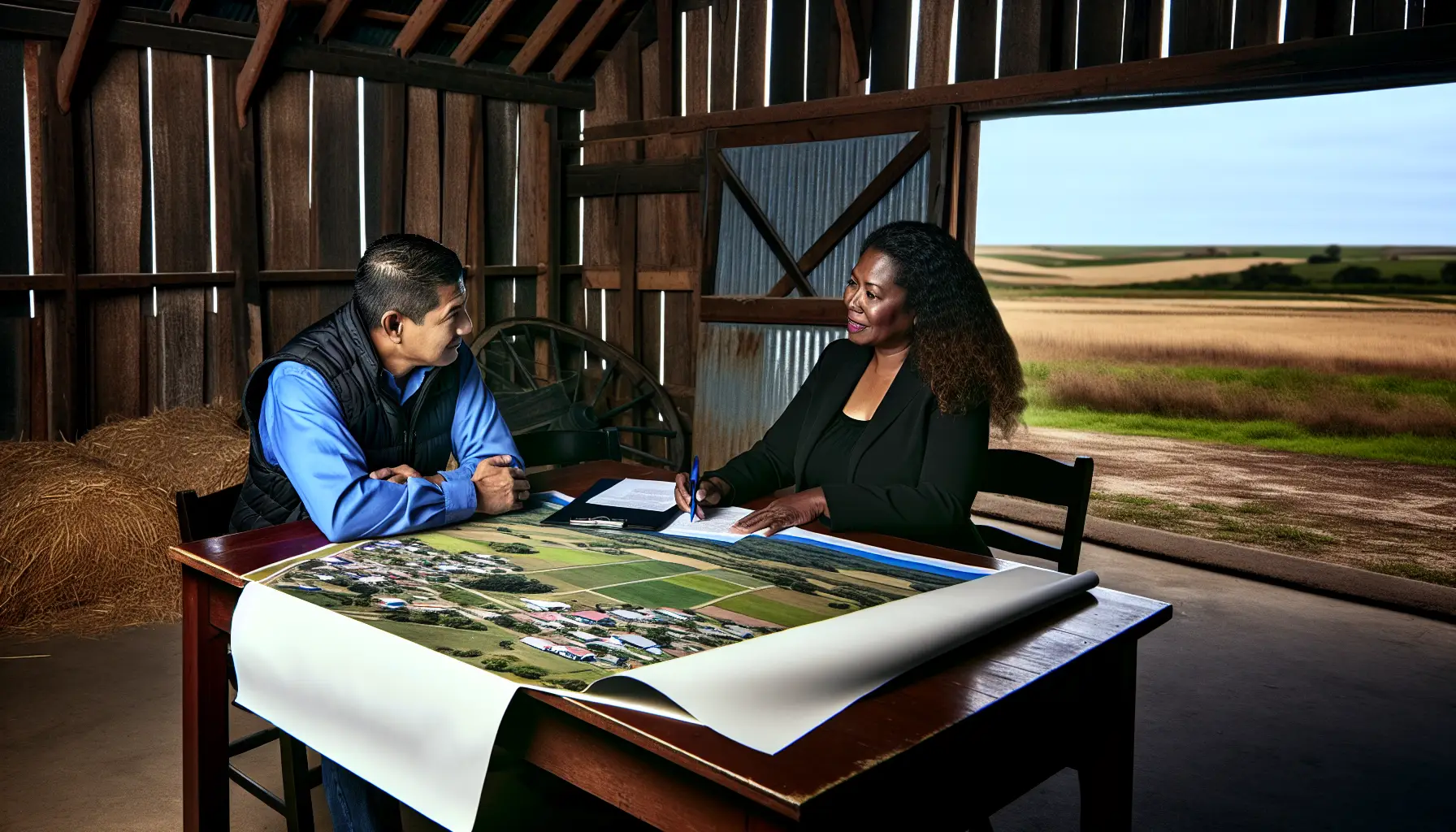Purchasing farmland in Texas offers tremendous opportunities, but it also comes with unique challenges. One crucial factor that buyers often overlook is the state of rural infrastructure. Elements like roads, bridges, and utilities significantly impact the functionality, accessibility, and long-term value of your property. These aren’t just conveniences; they are lifelines for transportation, irrigation, and operations. Before investing, it is essential to assess these key infrastructure aspects to ensure your land supports your farming goals.
In This Article:
Key Rural Infrastructure Considerations for Farmland Buyers
The Role of Roads in Farmland Access
Road conditions are vital when considering a rural property purchase. Well-maintained roads allow for easy transport of crops, livestock, and farm equipment to and from your property. Conversely, poor road infrastructure can lead to difficulties, including higher transportation costs and reduced property usability. Gravel or dirt roads may become impassable during heavy rains, and neglected paved roads can wear down vehicles and cause delays. Assess the connectivity and maintenance of the roads leading to your potential farmland investment to avoid future complications.
Bridge Conditions and Property Accessibility
Bridges are often necessary for properties near rivers, streams, or creeks. A weak or damaged bridge can isolate you from essential areas of your land, hindering productivity. Inspect bridges for cracks, corrosion, or structural weaknesses. Repairing or replacing a bridge can be highly expensive, so it is crucial to factor this into your budgeting. Consider involving an expert to give a detailed assessment if your property depends on bridge access.
Utilities: Water, Electricity, and Gas Availability
Reliable utilities are essential for farm operation. Water is indispensable for crop irrigation, livestock care, and daily property maintenance. Electricity powers vital equipment and facilitates modern farming practices, while natural gas might be necessary for specific needs, such as greenhouse heating or processing facilities. Ensure you understand the source and reliability of these utilities before purchasing. For instance, drilling a well or installing solar panels may be costly solutions if water or electricity is not readily available. Having consistent utilities is critical for the success of your farm.
Anticipating Maintenance Costs for Rural Infrastructure
Long-Term Upkeep and Financial Planning
Owning rural property means taking on the responsibility of upkeep. Rural roads, bridges, and utilities require regular maintenance, most of which may fall on you. Over time, infrastructure deterioration from weather events and everyday use can translate into significant repair costs. It is wise to create a financial plan that anticipates these expenses. For example, setting aside funds annually for road grading, utility upgrades, or potential bridge reinforcements will protect you from unexpected financial burdens.
The Impact of Local Government Plans
Future projects by local governments can influence your property’s infrastructure. For instance, repairs or expansions to public roads may improve accessibility and raise property value, but they can also increase local taxes. Research municipal records or attend local meetings to stay informed about infrastructure development in your area. Understanding these plans will help you prepare for future changes and costs that could affect your farm operations.
Conducting Infrastructure Assessments Before Buying
Bringing in Professionals for Evaluations
While self-assessment is possible, hiring professionals like civil engineers or land surveyors provides a more thorough evaluation of rural infrastructure. These experts can assess the state of roads, bridges, and utility systems and flag potential issues you might miss. Their expertise ensures that you make an informed decision and avoid pitfalls that could lead to significant repair costs or operational hindrances in the future.
Utilizing Available Resources and Local Knowledge
Leveraging online resources and tapping into local knowledge can be invaluable during your search. Websites that provide public records, zoning information, and permit data can offer insights about infrastructure conditions and legal restrictions on your potential farmland. Additionally, connecting with other landowners or farming communities in the area can provide firsthand information about challenges like unreliable roads or poorly maintained utilities. Local agricultural extensions or cooperatives may also offer helpful resources tailored to your region’s unique needs.
Legal Considerations Regarding Rural Infrastructure
Understanding Property Rights and Easements
Easements and property rights directly impact the use and access to rural infrastructures, such as roads or utility lines. An easement agreement may allow others to use certain parts of your land for these purposes, potentially limiting your freedom to develop or modify your property. Confirming the existence and terms of existing easements before making a purchase is vital to avoid conflicts or restrictions later. Easement agreements can significantly influence the cost and functionality of rural infrastructure, so they should not be overlooked.
Complying with Zoning Laws and Regulations
Zoning laws dictate land use policies for specific areas and can affect how you manage your property and its infrastructure. For example, some rural zoning regulations may restrict the construction of new access roads, limit expansions, or impose additional rules on utility installations. Violating these regulations might result in penalties or forced modifications, which can be costly. Familiarize yourself with Texas farmland zoning laws to ensure compliance and avoid any unexpected legal hurdles. Consulting a farmland real estate attorney in Houston familiar with rural zoning issues can provide clarity in complex cases.
Investing in rural farmland is a rewarding opportunity, but only if you account for all factors affecting its utility, accessibility, and long-term costs. Thoughtful evaluation of infrastructure conditions, along with understanding legal and zoning obligations, will set you up for a successful purchase. For detailed legal guidance tailored to real estate and rural infrastructure concerns, reach out to the experienced team at Daughtrey Law Firm. Their expertise in Houston real estate lawyer guidance and Texas mineral rights legal advice can help make your investment a sound decision.





















